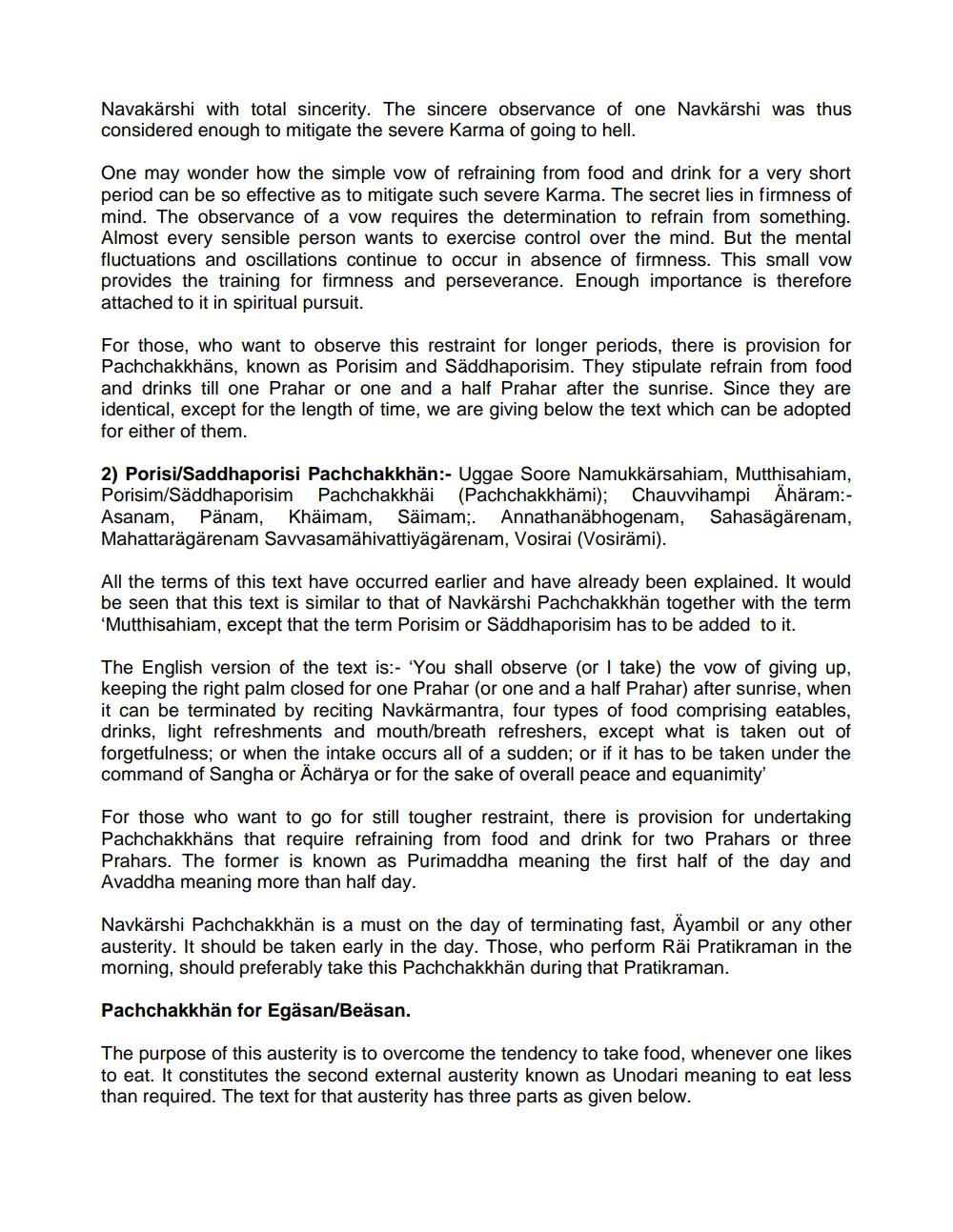________________
Navakärshi with total sincerity. The sincere observance of one Navkärshi was thus considered enough to mitigate the severe Karma of going to hell.
One may wonder how the simple vow of refraining from food and drink for a very short period can be so effective as to mitigate such severe Karma. The secret lies in firmness of mind. The observance of a vow requires the determination to refrain from something. Almost every sensible person wants to exercise control over the mind. But the mental fluctuations and oscillations continue to occur in absence of firmness. This small vow provides the training for firmness and perseverance. Enough importance is therefore attached to it in spiritual pursuit.
For those, who want to observe this restraint for longer periods, there is provision for Pachchakkhäns, known as Porisim and Säddhaporisim. They stipulate refrain from food and drinks till one Prahar or one and a half Prahar after the sunrise. Since they are identical, except for the length of time, we are giving below the text which can be adopted for either of them.
2) Porisi/Saddhaporisi Pachchakkhän:- Uggae Soore Namukkärsahiam, Mutthisahiam, Porisim/Säddhaporisim Pachchakkhäi (Pachchakkhämi); Chauvvihampi Ahäram:Asanam, Pänam, Khaimam, Säimam;. Annathanäbhogenam, Sahasägärenam, Mahattarägärenam Savvasamähivattivägärenam, Vosirai (Vosirämi).
All the terms of this text have occurred earlier and have already been explained. It would be seen that this text is similar to that of Navkärshi Pachchakkhän together with the term 'Mutthisaniam, except that the term Porisim or Säddhaporisim has to be added to it.
The English version of the text is:- 'You shall observe (or I take) the vow of giving up, keeping the right palm closed for one Prahar (or one and a half Prahar) after sunrise, when it can be terminated by reciting Navkärmantra, four types of food comprising eatables, drinks, light refreshments and mouth/breath refreshers, except what is taken out of forgetfulness; or when the intake occurs all of a sudden; or if it has to be taken under the command of Sangha or Acharya or for the sake of overall peace and equanimity
For those who want to go for still tougher restraint, there is provision for undertaking Pachchakkhäns that require refraining from food and drink for two Prahars or three Prahars. The former is known as Purimaddha meaning the first half of the day and Avaddha meaning more than half day.
Navkärshi Pachchakkhän is a must on the day of terminating fast, Ayambil or any other austerity. It should be taken early in the day. Those, who perform Räi Pratikraman in the morning, should preferably take this Pachchakkhän during that Pratikraman.
Pachchakkhän for Egäsan/Beäsan.
The purpose of this austerity is to overcome the tendency to take food, whenever one likes to eat. It constitutes the second external austerity known as Unodari meaning to eat less than required. The text for that austerity has three parts as given below.




